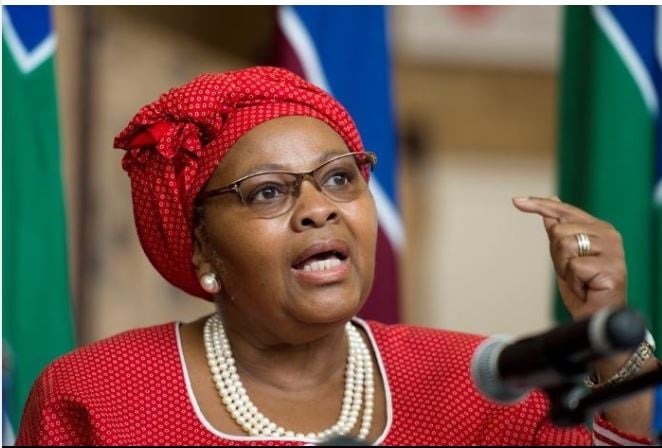
Nosiviwe Mapisa Nqakula. (Photo by Deaan Vivier)
- National Assembly Speaker Nosiviwe Mapisa-Nqakula says Parliament cannot be held accountable for the majority of ANC MPs voting against parliamentary oversight.
- She led a meeting with Chief Justice Raymond Zondo on Wednesday after his remarks about Parliament.
- The Speaker said Zondo should take issue with the abuse of the parliamentary majority to political parties, but that Parliament had done its job.
National Assembly Speaker Nosiviwe Mapisa-Nqakula says Parliament is not legally obligated to report its adherence to the state capture report’s recommendations to Chief Justice Raymond Zondo.
Mapisa-Nqakula was giving feedback on Thursday about Parliament’s presiding officers meeting with Zondo.
The leaders met on Wednesday at a closed-door meeting at the Constitutional Court, which was scheduled for an hour but ran for more than three.
Present at the event was National Council of Provinces chairperson Amos Masondo and his deputy, Sylvia Lucas.
Zondo created a tense standoff with Parliament last week when he remarked he held no hope the institution would be able to stop state capture if it happened again.
The chief justice was speaking at the anniversary of the release of the state capture commission report.
READ | ‘Nothing has changed’: Zondo fears state will be captured again, and Parliament won’t stop it… again
The report was scathing of Parliament’s lack of action in holding the executive accountable in the early days of state capture under former president Jacob Zuma.
Zondo had recommended several changes to the institution to remedy this oversight.
In his view, these recommendations were not implemented yet and, as such, pointed to “nothing changing”.
Zondo angered Mapisa-Nqakula, and a meeting with him was arranged.
The meeting was cordial, and attendees focused on philosophy and the law.
Mapisa-Nqakula said Zondo had understood their perspective on the separation of powers.
They also gave him a detailed outline of what Parliament had done to adhere to the recommendations.
Zondo did not apologise for his views, according to Mapisa-Nqakula, saying he did not base his comments on facts.
“There is no formal requirement for Parliament to provide progress reports to the chief justice on the recommendations,” she said.
READ | Parliament requests urgent meeting with Chief Justice Zondo over his state capture remarks
Mapisa-Nqakula added Parliament had done so much, and it was unfair to blame it for the actions of the majority of MPs.
She said the issues raised by Zondo about the majority of ANC MPs voting against significant oversight could not be blamed on Parliament but rather directed to political parties represented in it.
“We said, CJ [chief justice], there is no way you are finding Parliament for not following the processes.
“We followed the processes to the last you are talking about the majority, which overrules the process.
“That is a matter he can engage with political parties and civil society so people can know that when they go to Parliament, they are representatives of political parties, but equally, there are issues there should be driven by conscience,” Mapisa-Nqakula added.
The ANC has been criticised for shielding its leaders against accountability by blocking oversight measures proposed by the opposition, especially the DA.
The ANC had voted against further probes in the Phala Phala matter, which implicated President Cyril Ramaphosa.
Mapisa-Nqakula said:
You cannot say Parliament has done nothing; we have done everything to the latter.
In response to the commission’s recommendation, Parliament developed a comprehensive implementation plan structured around four key focus areas, namely:
- Parliamentary oversight and accountability.
- Parliamentary oversight of the executive’s response plan.
- Monitoring of Parliament’s implementation plan.
- Parliamentary reforms to strengthen Parliament’s constitutional mandate.